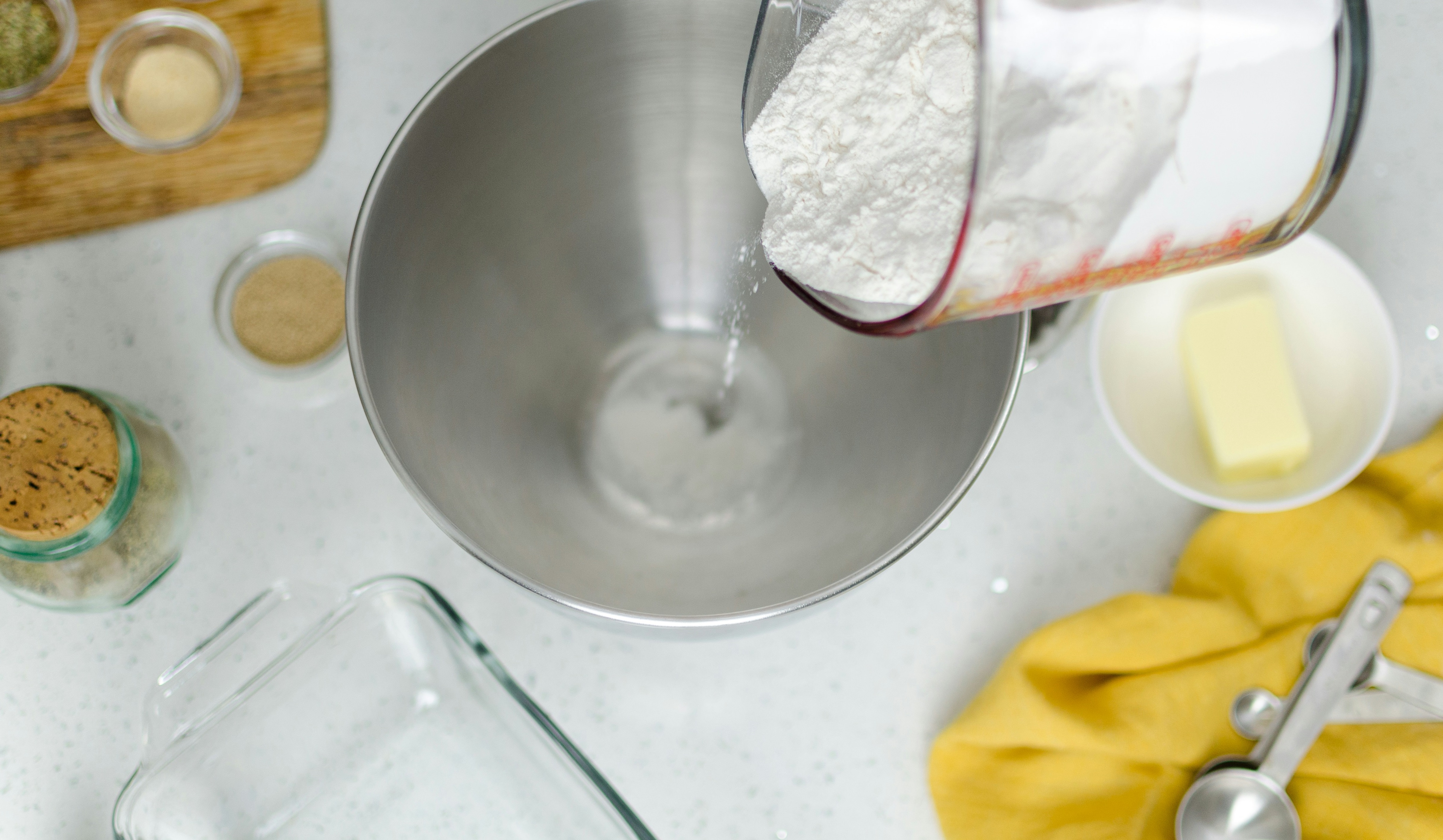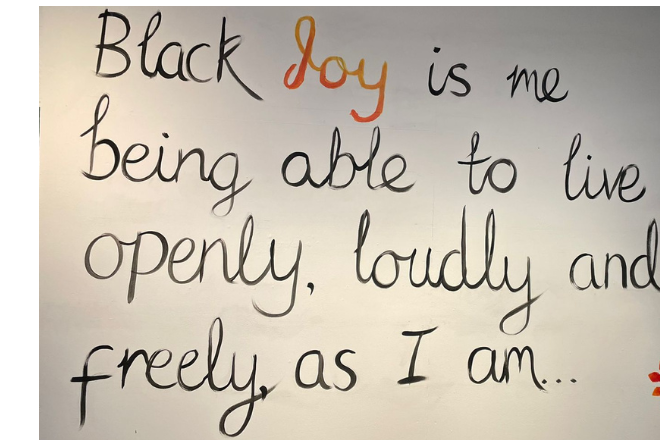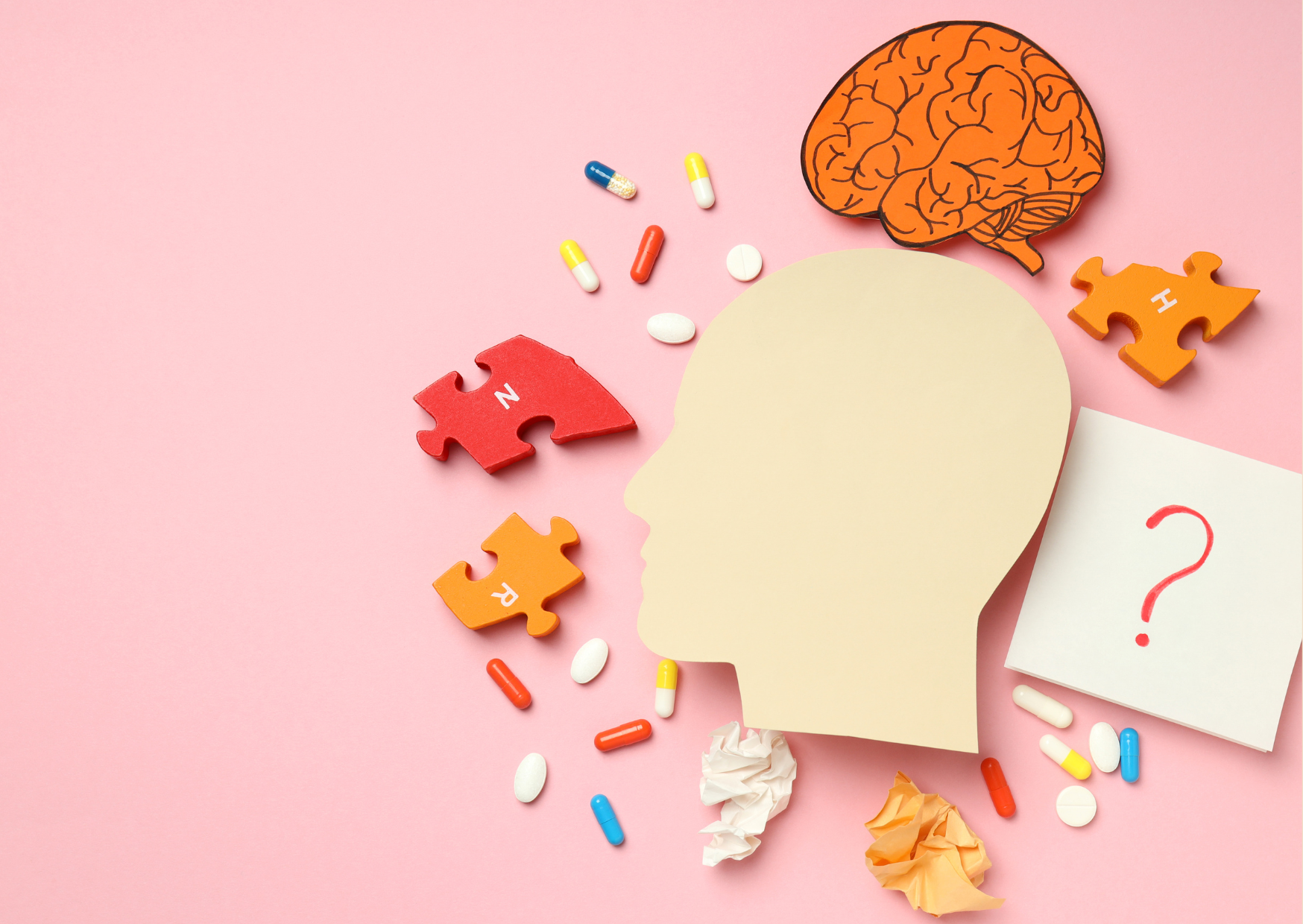Please be aware you may find this blog shocking and difficult to read, and it may contain triggers for you. It has references to topics such as childhood abuse, mental illness and anorexia. Please only read on if you feel able to - your awareness may help change somebody's life.
Co-producers Rosie and David came to us as they want to share their stories relating to complex post-traumatic stress disorder (CPTSD). In this blog they discuss what it is and how it has affected them, not to shock you, but because they are keen to raise awareness and understanding. They also want to highlight why co-production is so important to them both and how its presence - or not - has affected their treatment. Names have been changed where requested to protect identity.

Rosie
My name is Rosie. I’m 28 and very lucky.
Not only do I have support for a very complex mental health issue, I can also say that the service I am using is fully co-produced. I say I'm lucky because I know how rare it is to find the right support, especially for something as complex as the trauma I am treated for.
When I was seven, I was abused multiple times by someone close to me. Afterwards, I was still a good student and a dutiful daughter, except I had to keep a shameful secret that never really felt like my own.
I concentrated only on my studies but every so often I would have a violent breakdown. These episodes were confusing and very difficult to hide. To repress them, I developed anorexia, occupying my mind during the day, and an equally strong habit of drinking alcohol at night. The years passed like this, through high school, university, two jobs, until I finally heard the term complex PTSD and the possibility that I could step away from numbness and pain.
Complex Post Traumatic Stress Disorder (CPTSD) is a high prevalence psychiatric condition that is both the cause and effect of significant social problems and inequalities. Frustratingly, it is not as well-known as PTSD, even though CPTSD is a more common, comorbid, debilitating condition compared to PTSD.
CPTSD involves a long-term experience often beginning in early childhood, affecting brain development. It is not due to one incident but due to prolonged trauma such as child maltreatment — including emotional abuse and neglect, sexual abuse, physical abuse, or witnessing domestic violence. Most importantly, the two disorders differ in terms of symptoms and the treatment needed for them.
Without widespread recognition, finding support is almost impossible. Help would not arrive until my alcohol abuse reached terrifying new heights and a sexual health nurse noticed a pattern in my visits. She asked me a series of questions and my trauma history was finally on clinical record. Since 2014, NICE guidelines recommend sexual health clinics to routinely ask questions about domestic abuse and sexual assault. This policy practically saved my life, so I would strongly recommend extending it to GP consultations, where young people could talk confidentially about their difficulties, much sooner than years after the traumatic event.
Co-producing policies like these with those who have experience of CPTSD could be transformative. I waited nineteen years for those questions to be asked. Others are not so lucky. They stay isolated and unaware that their symptoms are part of a disorder that can be treated. Meanwhile the loneliness, the substance abuse, and suicide attempts ultimately take their toll on their bodies and minds.
Since 2018, I have been using a treatment called Eye Movement Desensitization and Reprocessing, a process that involves me paying money in exchange for re-living the most traumatic experiences of my life until at some point my violent responses to them subside. I was even less excited to hear that part of getting better is “being patient with myself” and “cultivating self-compassion”. During times when I felt like quitting, it helped a lot that my counsellor has lived experience of substance abuse and that he believes in the core values that make co-production possible. Since the very first session, it has been about us working together as one team, sharing power. My honest opinions about the treatment are always taken into consideration, so every session is shaped together in a way that makes sense to me.
A fantastic book, written by a researcher who dedicated his entire career helping survivors of trauma, has been another great source of encouragement. While reading it, I find new hope that if CPTSD becomes widely recognised, we will see co-produced research published on the subject and find even better ways to treat and prevent trauma.
David
I'd like to start by introducing myself. My name is David; I'm in my late forties; I've got complex PTSD as well as a physical disability (Ehlers Danlos Syndrome). I also have autism – so life is more than a little challenging for me.
My complex PTSD came about as a result of child abuse – this was physical, sexual and psychological. Like a lot of people do, I buried what had happened to me and tried to get on with life. It was just how things were at the boarding school I went to. People said it toughened you up, but for me it left my life in a mess. Even now, more than thirty years on, I find it very hard to trust people or form relationships. I have intrusive thoughts and painfully vivid memories. I often have dreams that seem as real as my waking life – so much so that I have to check my phone when I wake up to find out if the texts and WhatsApp messages in my dreams really happened.
When I tell people that I've got complex PTSD, I usually have to explain how it's different from PTSD. It's actually quite straightforward: complex PTSD is a result of a series of traumatic events, rather than a single traumatic event. Another difference is that I don't have outbursts of anger or violence - I'm quite safe to be with, although I don't feel safe around people.
When my symptoms got so intense that I couldn't hide them any more, I thought I had depression, so that was what my doctor treated me for. Medication wasn't really any help as I had unpleasant side effects to everything they tried me on. My local IAPT service diagnosed me with complex PTSD – and then I had to wait for my treatment to start. While I was waiting (it was months rather than weeks), things got so bad that I had to call the crisis team – it really was the 'final straw'. Fortunately the therapist I spoke to helped me get through my immediate situation and I didn't need to call them again.
At the time of writing this, I'm three weeks into a sixteen-week series of counselling sessions, so I'm really only at the start of my journey towards wellness. What concerns me is the possibility that I might be cut adrift with no support once my counselling sessions have finished. Another thing that particularly bothers me is treatment seems to be 'one size fits all', with no opportunity for me to have a say in it. As I am experienced in co-production (providers and recipients working together to design and optimise services) I find this extremely disheartening. Unlike Rosie, my treatment plan hasn't been discussed with me, and I often wonder if they're making it up as they go along. My experience of mental health services is that they're poorly signposted and far too paternalistic – and when I was (briefly) on the board of governors of a mental health trust I was horrified to discover that the same is true even to those on the inside. Worse still, there was an attitude of 'don't rock the boat' and a culture of meetings for the sake of having meetings rather than achieving anything.
Whilst I would like to be optimistic about the future, both for my own wellbeing and for mental health services in general, I feel that my experiences give me very little to be hopeful about. The only way this will change is if mental health professionals actively engage with those they treat in order to co-produce services tailored to the individual.
I first became involved in co-production through linking up with a diverse group of people who together have a variety of lived experience which we bring to our work with local authorities and government departments. What I enjoy most about it are the moments of realisation when someone contributes an idea or something from their experience that turns out to be the key to establishing a new way forward on a task or project. It's moments like this that motivate me to keep going and plod on to work through my difficulties.
Get support
If you need immediate support, please call Refuge’s National Domestic Abuse Helpline for free and confidential advice, 24 hours a day on 0808 2000 247 or get in touch with one of the below organisations:
Access the government's guidance for seeking support.
Access support and resources about CPTSD recovery.
Access a list of therapists specialising in CPTSD.
Access help for adult victims of child abuse.
Access more information about trauma and brain development.




.png)

.png)
.png)


.png)
.png)
.png)